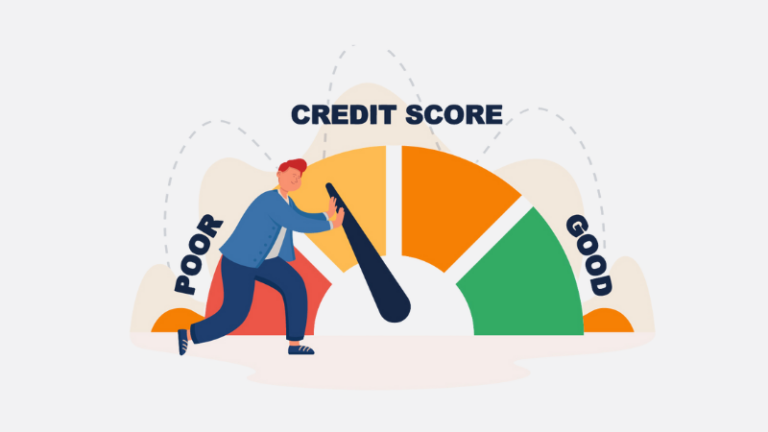10 Smart Ways to Improve CIBIL Score from 600 to 750: Step By Step Guide
A good CIBIL score is crucial for securing loans and credit cards with favourable terms. A score of 750 or above shows that you’re a reliable borrower, but many people struggle with scores around 600. If you’re wondering how to increase your CIBIL score from 600 to 750, there are practical steps you can take. These steps will not only help boost your score but also improve your overall financial health. In this guide, we’ll look at 10 smart strategies to raise your CIBIL score.
1. Pay Your Bills on Time
Timely payments are one of the most important factors affecting your CIBIL score. Late payments can significantly lower your score. If you’re wondering how to increase CIBIL score from 600 to 750, a key step is to ensure you pay credit card bills, loan EMIs, and other dues on time. Setting reminders or automating payments can help ensure you never miss a payment. This steady, on-time payment behaviour will steadily improve your credit score and help you achieve your goal.
2.Reduce Your Credit Utilisation Ratio
A high credit utilisation ratio can harm your score. The credit utilisation ratio is the percentage of your credit limit you’re using. To improve your CIBIL score, keep your utilisation below 30%. For example, if your credit limit is Rs. 1,00,000, aim to use no more than Rs. 30,000. This shows lenders that you’re not overly dependent on credit.
3. Avoid Multiple Loan Applications
Applying for multiple loans or credit cards within a short period can negatively impact your score. Each time you apply for credit, the lender performs a hard inquiry on your report, which slightly lowers your score. If you’re considering small personal loans, apply only when necessary, and avoid multiple applications in a short time to protect your score.
4. Pay Off Existing Debt
Carrying high levels of debt can lower your CIBIL score. Focus on paying off your existing loans and credit card balances. Start with high-interest debts to save on interest costs, but pay all debts consistently. Reducing your overall debt improves your debt-to-income ratio, which has a positive impact on your credit score.
5. Keep Old Credit Accounts Open
Closing old credit accounts might seem like a good idea, but it can actually lower your score. Length of credit history is a key factor in calculating your CIBIL score. Keeping old accounts open, even if they have a zero balance, can positively affect your score by showing a long and stable credit history.
6. Diversify Your Credit Types
A mix of credit types can positively impact your CIBIL score. Lenders view a diverse credit portfolio—such as having a mix of secured loans, like a home loan, and unsecured loans, like small personal loans—as a sign of financial stability. Balancing different types of credit responsibly can help boost your score over time.
7. Check Your Credit Report Regularly
Mistakes in your credit report can lower your score without you realising it. Regularly checking your credit report allows you to spot any errors, such as incorrect late payments or outdated information. If you find errors, report them to CIBIL for correction. Keeping your report error-free ensures that your score accurately reflects your credit behaviour.
8. Settle Debts Rather Than Avoiding Them
If you have outstanding debts, don’t avoid them. Settling your debts, even if you’re only able to make partial payments, shows lenders that you’re responsible. Lenders prefer borrowers who make an effort to settle their debts rather than avoiding them altogether. This responsible action can help improve your score over time.
9. Limit Your Credit Card Usage
Credit cards can be convenient, but overusing them can harm your score. Keep balances low, and if possible, pay the full amount due each month to avoid interest charges and credit utilisation penalties.
10. Take a Secured Loan to Build Credit
If you’re struggling to increase your score, taking out a secured loan can help. A secured loan, such as a Gold Loan or a loan against Fixed Deposits, has lower risk for the lender, which makes it easier for you to get approved. Repaying this loan on time shows responsible credit behaviour, helping to gradually improve your CIBIL score.
Conclusion
Improving your CIBIL score from 600 to 750 takes time and effort, but it’s achievable with the right steps. By following smart strategies like paying your bills on time, managing credit utilisation, and handling debt responsibly, you can raise your score and enhance your financial profile. For those seeking small personal loans, a better credit score will ensure access to loans with favourable terms. Regularly monitoring your credit behaviour and making responsible financial decisions will lead to long-term benefits, allowing you to maintain a high CIBIL score and secure future credit needs.

